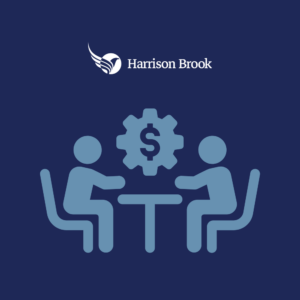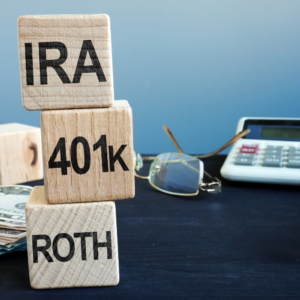Are you new to investing and are wondering what is an ETF? The financial world is filled with acronyms and jargon that leave many new investors feeling lost. Exchange-Traded Funds (ETFs), are a powerful tool that can simplify investing and provide diversification. This guide aims to shed light on ETFs, explaining their inner workings, benefits, and how they can fit into your investment strategy.
Origin Story
The first ETF was launched in Canada in 1990, which paved the way for the introduction of the first U.S. ETF, the SPDR S&P 500 ETF Trust , in 1993. ETFs took time before they started to grow rapidly in popularity, and today there are over 12,000 ETFs worldwide with over $8.09 trillion in assets.
ETF’s Unsung Hero: Nate Most
Nate Most is regarded as the inventor of the first U.S. ETF, and their subsequent success. As with many novel ideas, Most’s ETF was greeted with skepticism. It took three years for Most to convince his employer to invest in the creation, and pass it through the arduous SEC approval process. But with the stock market crash of 1987, the SEC was looking for new hedging mechanisms to protect investors. So, with the opportune timing, coupled with Most’s relentless energy, ETFs finally received the approval from the SEC after an arduous three years.
ETFs: A Basket of Assets in a Single Package
At its core, an ETF is a basket of securities that trades on a stock exchange just like a single stock. This basket can hold various assets, such as stocks, bonds, commodities, or even a combination of these. It’s similar to a mutual fund, but that’s available to trade throughout the day like a company share.
ETFs are created by large financial institutions, called authorized participants, by depositing the underlying assets (stocks, bonds, etc.) with a custodian bank. The ETF is then separated into shares and sold on stock exchanges like the NYSE. (https://www.nyse.com/index) Just like any stock, the prices of ETF shares fluctuate throughout the trading day based on supply and demand.
What Securities Can I Find in an ETF?
- Equity ETFs: Equity ETFs track a specific index of equities, which can focus on a specific company size, country or a specific industry.
- Bond/Fixed Income ETFs: These ETFs represent a basket of bonds and/or fixed income securities that normally provide a steady return at potentially lower risk.
- Commodity ETFs: ETFs are a great way to get into commodities like gold, silver or oil, which are often harder to access than stocks. However, they often don’t directly own the underlying asset, like gold, but use derivatives instead, which can carry more risk.
- Factor ETFs: Factor investing, often referred to as “Smart Beta”, is an investment approach that involves choosing securities by targeting specific drivers of return across asset classes, such as a company’s financial ratios and/or data.
- Sustainable ETFs: Sustainable investing combines traditional investment approaches with environmental, social and governance insights.
- Currency ETFs: Currency ETFs will invest in either a single currency, like the US dollar, or a basket of currencies. The ETF will either invest in the currency directly, use derivatives, or a mix of the two.
- Specialty/complex ETFs: More complex funds have emerged in recent times to meet very specific needs through leveraging and options. The two most common are:
- Inverse funds: these funds go up when the target index goes down – similar to investors short-selling a stock as its price falls
- Leveraged funds: aim to maximize returns by borrowing more money (leverage) to invest. These ETFs typically say by how much they are leveraged, for example, 2X will borrow an extra $1 for every $1 investors put into the fund.
Benefits of ETFs
ETFs offer a multitude of advantages for investors of all levels:
- Diversification: One of the most significant benefits of ETFs is their ability to provide instant diversification. By investing in a single ETF, you can gain exposure to a broad range of assets, reducing your risk compared to holding just a few individual stocks.
- Cost-Effectiveness: Compared to actively managed mutual funds, ETFs often boast lower expense ratios. Lower fees translate to more money staying in your pocket.
- Transparency: The holdings of most ETFs are readily available online.
- Liquidity: ETFs trade throughout the day, similar to stocks. This means you can easily buy and sell them at any point during trading hours.
- Tax Efficiency: Due to their structure, when an ETF sells underlying assets within the fund, it may not trigger capital gains for individual shareholders unless they sell their ETF shares themselves.
Buying ETFs as an Expat American Living Overseas
One of the many hurdles in buying ETFs is getting access when you live overseas. Each country has its own set of rules and regulations which can limit access for US expats and/or the brokerage firms they work with. Many foreign ETFs may not be considered “compliant” by the IRS – and vice-versa – leading to complex tax reporting requirements and potential penalties. In addition, currency conversion fees can add additional costs and complexity to the investments. At Harrison Brook, we have the hability to purchase ETFs for our clients inside retirement accounts like IRA or Roth IRA and also inside a brokerage account. European residents need to be classified as Professional Clients to purchase ETF but as advisors we can do it for our clients.
Get Help with a Harrison Brook Cross-Border Advisor
Harrison Brook is at the forefront of cross-border financial service, helping expats optimize their investment while avoiding costly mistakes. We’ve done the legwork to find partners and solutions that are adapted to expats, whether it’s attorneys specialized in cross-border estate planning, or tax advisors that can take care of American and local taxes. It is important to build a team of professionals that will be able to handle all the cross-border issues, so don’t hesitate to reach out to us and schedule a meeting with a Harrison Brook advisor.


